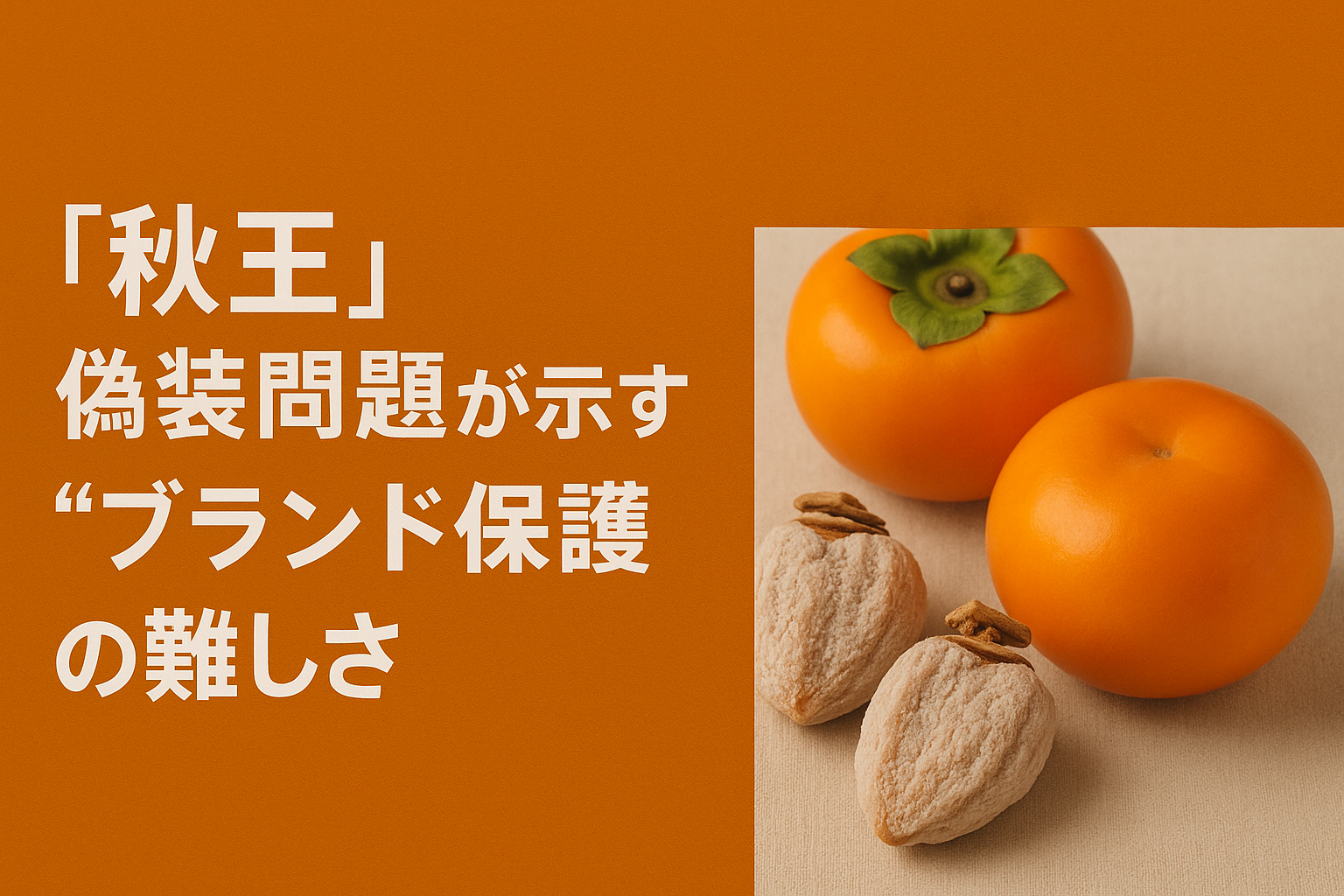Fukuoka Prefecture has issued a warning after dried persimmons labeled as the prefecture’s branded variety “Akiou” were found being sold on overseas e-commerce sites. The reason the issue gained attention even before the authenticity was confirmed is not simply “unauthorized use of the name,” but because it reveals deeper structural challenges Japan faces in protecting its agricultural brands.
This article examines what this incident signifies and what consumers should be aware of.
Why the “Akiou” Issue Is So Serious
“Akiou,” a persimmon variety developed by Fukuoka Prefecture, is a popular premium fruit known for its high sugar content, pleasant texture, and few seeds. It was trademarked in 2012, and systems for protecting it are in place both domestically and internationally.
However, the current problem arose when a foreign company operating an online shopping site began selling dried persimmons labeled “Akiou,” raising concerns over:
- Whether the fruit used is actually Akiou
- Whether Fukuoka Prefecture has granted trademark usage rights
According to the prefecture, product images strongly suggest the fruit is not Akiou at all, and some listings even display an unregistered GI (Geographical Indication) mark.
In other words, this is not a simple “mislabeling error,” but a case with the potential for malicious intent that could damage the brand’s credibility—making the situation far more serious.
Why Do “Brand Imitations” Occur Overseas?
Although protection for agricultural brands is steadily improving within Japan, the situation changes dramatically once products enter foreign markets.
Trademarks Alone Are Not All-Powerful
Fukuoka Prefecture has registered the Akiou trademark in China, South Korea, Hong Kong, and Taiwan. However, in practice, it is difficult to keep up with:
- The speed at which imitation products appear
- Unauthorized reuse of images
- Challenges verifying product authenticity
High-Quality Japanese Brands Are Prime Targets
Because Japanese agricultural brands are known for high quality, dishonest sellers often exploit the name to charge higher prices.
Rapid Growth of Cross-Border E-Commerce
Overseas e-commerce platforms vary widely in how strictly they manage product quality. Unauthorized brand usage and casual reuse of images are especially likely in such environments.
How Should Consumers Respond?
Fukuoka Prefecture has already received inquiries from people saying they “accidentally purchased” the product.
The prefecture urges consumers to contact the National Consumer Affairs Center’s Cross-Border Consumer Center for assistance if they encounter trouble. Since returns or refunds can be difficult with cross-border purchases, it is essential to check:
- Whether the price is unusually high or low
- Whether the seller’s information is unclear
- Whether trademark usage authorization is clearly stated
- Whether product images look suspicious or unnatural
The era in which consumers could simply trust a product because “the brand name is written on it” has come to an end.
What Is Needed to Protect Japan’s Agricultural Brands?
The suspected “Akiou” mislabeling case raises a broader question: how can regional agricultural brands be protected inside and outside Japan?
Strengthening Trademark Strategies Overseas
Efforts must include not only registration but also monitoring systems and mechanisms to support enforcement and crackdowns on counterfeits.
Improving Public Awareness
Providing consumers with guidance on distinguishing genuine products from counterfeits and correctly displaying certification logos (such as GI marks) is also vital.
Collaboration with E-Commerce Platforms
Platforms must strengthen reporting systems for illegal listings and enhance cooperation in tackling brand misuse.
Conclusion: Protecting Brands Is Not Just the Job of Producers and Government
The “Akiou” issue symbolizes the risks that branded agricultural products face in overseas markets. There are limits to what producers and local governments can prevent on their own, which is why consumer literacy is increasingly important.
Being mindful of whether products come through legitimate distribution channels and choosing authentic items ultimately helps protect Japanese agricultural brands.
To continue enjoying genuine “Akiou,” we must all act as informed and discerning consumers.

